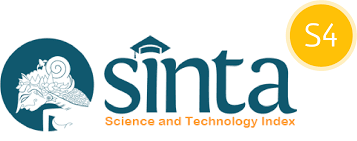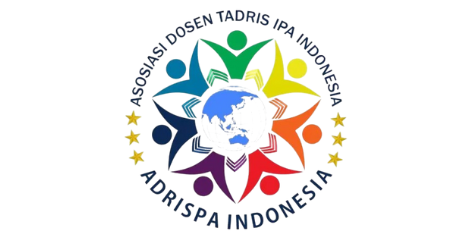Analisis Studi Kelayakan Laboratorium Ilmu Pengetahuan Alam di SMPN 2 Tempurejo
DOI:
https://doi.org/10.35719/vektor.v2i1.25Keywords:
equipment, feasibility study, laboratory, natural science, practicumAbstract
SMPN 2 Tempurejo merupakan salah satu sekolah dengan daerah terpencil yang memiliki fasilitas penuh terhadap mata pelajaran IPA. IPA adalah salah satu mata pelajaran yang mempelajari tentang fenomena alam dengan berbagai bidang kajian di dalamnya. IPA sangat erat kaitannya dengan praktikum dan laboratorium. Tidak etis rasanya mempelajari IPA tanpa melakukan praktikum di laboratorium. Dengan adanya sebuah permasalahan mengenai ruangan laboratorium yang multifungsi, maka peneliti bertujuan untuk melakukan studi kelayakan laboratorium IPA di SMPN 2 Tempurejo. Metode yang digunakan yaitu metode deskriptif analisis dengan instrumen wawancara kepada guru IPA di SMPN 2 Tempurejo. Hasil penelitian menunjukkan bahwa dengan ruangan yang multifungsi dapat menjalankan segala kegiatan laboratorium dengan semestinya, aman, dan tertib terhadap prosedur yang ada, serta dapat dikatakan layak dalam penggunaan laboratoriumnya.
Kata Kunci: IPA, kelengkapan, laboratorium, praktikum, studi kelayakan
SMPN 2 Tempurejo is one of the schools in remote areas that has full facilities for science subjects. Science is a subject that studies natural phenomena with various fields of study in it. Science is closely related to practicum and laboratory. It is unethical to learn science without doing lab work. With a problem regarding a multifunctional laboratory room, the researchers aimed to conduct a feasibility study for the science laboratory at SMPN 2 Tempurejo. The method used is descriptive analysis method with interview instruments to science teachers at SMPN 2 Tempurejo. The results showed that a multifunctional room could carry out all laboratory activities properly, safely and in an orderly manner towards existing procedures, and it could be said that it was feasible to use the laboratory.
Keywords: equipment, feasibility study, laboratory, natural science, practicum
References
Anggraeni, E. B. (2001). PENGANTAR EPIDEMIOLOGI EDISI 2. Jakarta: PENERBIT BUKU KEDOKTERAN EGC.
Dasar, P. (2007). Manajemen laboratorium. 1–15.
Fatah, Z. (2017). Sistem Informasi Laboratorium Ipa Di Man Bodowoso Menggunakan Php Dan Mysql, 3(2), 74–81.
Fatta, H. A. (2007). Analisis dan Perancangan Sistem Informasi untuk Keunggulan Bersaing Perusahaan dan Organisasi MOdern. Yogyakarta: ANDI.
Hofstein, A dan R.M. Naaman. (2007). The laboratory in science education: the state of the art. Journal the Royal Society of Chemistry, 8. (2), 105-107
Ismail Nurdin, S. H. (2019). METODOLOGI PENELITIAN SOSIAL. Surabaya: Media Sahabat Cendekia.
Laboratorium, D., Yogyakarta, P., Sugiharto, A. D., Sutanto, A., & Hidayat, A. C. (2020). Analisis Patient Safety. 5(1), 24–36.
Meita, N. M. (2017). Studi Kelayakan Pengelola Laboratorium IPA SMP N 4 Sumenep. Pendidikan IPA, 7, 40–47.
Putri, D. P., & Fatmawati, A. (2019). Sistem Informasi Pengelolaan Laboratorium IPA di SMP Negeri 1 Manggar. Jurnal INSYPRO (Information System and Processing), 4(2), 1–8.
Salabi, A. (2016). Needs Assessment Laboratorium Biologi Pada Madrasah Aliyah Negeri (Man) Di Kota Banjarmasin. Jurnal PTK & Pendidikan, 2(2), 27–34.
Wiratma, I. G. L., & Subagia, I. W. (2014). Pengelolaan Laboratorium Kimia pada SMA Negeri di Kota Singaraja : ( Acuan Pengembangan Model Panduan Pengelolaan Laboratorium Kimia Berbasis Kearifan Lokal Tri Sakti ). Science Education, 3(2), 425–436.
Downloads
Published
How to Cite
Issue
Section
License
Copyright (c) 2021 VEKTOR: Jurnal Pendidikan IPA

This work is licensed under a Creative Commons Attribution-ShareAlike 4.0 International License.
Authors who publish with this journal agree to the following terms:
- Authors retain copyright and grant the journal right of first publication with the work simultaneously licensed under the terms of the CC BY-SA 4.0 License that allows others to share the work with an acknowledgment of the work's authorship and initial publication in this journal.
- Authors are able to enter into separate, additional contractual arrangements for the non-exclusive distribution of the journal's published version of the work (e.g., post it to an institutional repository or publish it in a book), with an acknowledgment of its initial publication in this journal.
- Authors are permitted and encouraged to post their work online (e.g., in institutional repositories or on their website) prior to and during the submission process, as it can lead to productive exchanges, as well as earlier and greater citation of published work.







